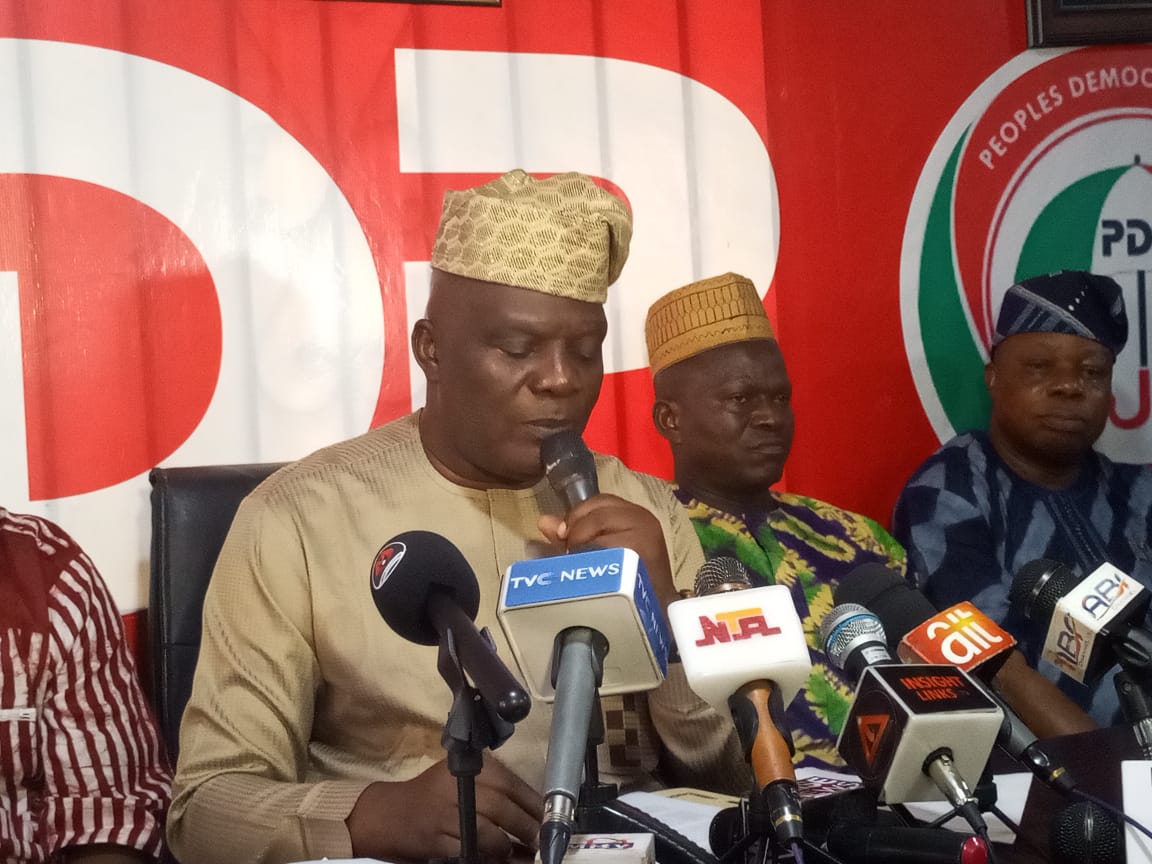NNPC, Marketers Traded Words Over Fuel Scarcity.
In its statement, the Nigeria National Petroleum Corporation has blamed the lingering fuel scarcity in the country on panic buying and sharp practices by some petroleum marketers who are exploiting the present situation to make more money.
According to report, the company also pledged that the fuel queues across the country would end next week, noting that it had enough litres of fuel to end the scarcity.
The Petroleum Marketers, however, has disagreed on the position of NNPC, insisting that inadequate supply was a major reason for the persisting fuel scarcity.
It should be recalled that Femi Soneye, the NNPC spokesperson was on Tuesday assured that the ongoing shortage in supply of petroleum products and queues for the products would be cleared by 1st of May.
According to him, the company had more than 1.5 billion litres of petroleum products available, enough to last for at least 30 days. He added that some individuals might be exploiting the situation to maximise profit.
It was gathered from the Major Energies Marketers Association of Nigeria, in a statement released, said its members in Apapa and other locations in Lagos had received 300 million litres of fuel from eight vessels this week.
This was after the South-West Regional Coordinator of the Nigerian Midstream and Downstream Petroleum Regulatory Authority, Ayo Cardoso, confirmed to our correspondent that aside from the 240 million litres offloaded at various depots on Monday, close to 85 million litres of petrol was alst offloaded as of Tuesday evening.
Cardoso further affirmed that the government was doing its best to ensure massive distribution of PMS, adding that the product would soon be available across the country.
Each state of the federation had its allocations, saying the same will be delivered to reduce the queues at filling stations.
“As I said earlier, there will be enough fuel across Nigeria soon. We have received over 300 million litres as of Tuesday. More have arrived as we speak, but I can’t give you the figure. Vessels will keep arriving in Nigeria for 15 days, which started counting on Monday, and we will keep distributing the product across the nation.
“The masses should not panic; all these will soon vanish. We are not prioritising anywhere, each state has its allocation to be delivered accordingly,” Cardoso stated.
It is widely known that in the last few days, the queues and shortage of petroleum products worsened the living conditions of most Nigerians as they struggled to get the product.
Several Nigerians deserted road while some individuals parked their vehicles at various filling stations pending the availability of petrol.
Report also have it that hoarding of the product had also been on the increase, as some took advantage of the situation.
Concerned, the House of Representatives Committee on Petroleum Resources (Downstream and Midstream) called on security agencies to pick up hoarders of PMS.
Speaking on the situation today, the spokesperson of NNPC, Olufemi Soneye, explained that the oil firms currently had about three billion litres of petrol, as he blamed oil marketers and panic buying for the lingering queues.
“The queues are clearing. They won’t just clear like that, because people are trying to hoard, while others are buying what they don’t need. That is why we keep saying there is enough product; there is no need to buy what you don’t need”.
“Also, you can’t exclude the marketers in this, as they want to use this opportunity to make more money. These are the issues, which is why we have involved the NMDPRA, because it is their duty to ensure that the right thing is done by these filling stations”.
“Our job is to provide the product and we’ve told you that we have over 1.5 billion litres available. So, the NMDPRA should please do something about the distribution. It is not our job. We are not the regulator, and we don’t have power to sanction the filling stations that are not doing what they are supposed to do.”
Soneye reaffirmed that the NNPC had increased the volume of petrol in Nigeria and insisted that distribution by marketers was now the concern.



